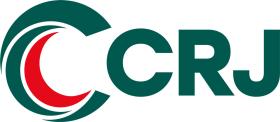CEMEX UK drive down emissions
Increased use of alternative kiln fuels results in substantial reduction in CO2 and other emissions
CEMEX UK say they replaced more than 52% of the traditional fossil fuels used to heat their cement kilns with alternative fuels during 2010, up from 45% in 2009.
Based on the renewable organic materials content in the alternative fuels, referred to as biomass, this means the company saved nearly 194,000 tonnes of CO2 over a 12-month period – equivalent to saving the CO2 emissions generated by around 77,000 cars in a year.
In the UK, CEMEX use alternative fuels in the kilns at their two cement plants in Rugby and South Ferriby. These used 49% and 67% alternative fuels, respectively, during 2010.
The alternative fuels used at Rugby are Climafuel and chipped tyres, while at South Ferriby Climafuel and secondary liquid fuel (SLF) are utilized.
Climafuel is derived from household and commercial and industrial waste which is diverted from landfill and processed through a mechanical and biological treatment (MBT) plant. Secondary liquid fuel is made from industrial liquid wastes that cannot be recycled, such as paint thinners, inks and varnishes.
According to Carlos Uruchurtu, vice-president of cement operations for CEMEX UK, increasing the use of alternative fuels to replace traditional fossil fuels, such as coal, is key to improving environmental performance at the plants. ‘It helps to reduce the carbon footprint in particular, but also to drive down other emissions, such as oxides of nitrogen and sulphur dioxide,’ he said.
‘The use of alternative fuels also helps to reduce waste sent to landfill. In CEMEX’s case, more than 300,000 tonnes of waste that would otherwise go to landfill was used to fuel the kilns in 2010.
‘We did well in 2010, but are looking to increase the use of alternative fuels further in the future. While 100% replacement would be a challenge in the immediate future, it should be our goal, subject to public consultation and permit approvals, as well as capital investment and continuous improvements in the waste-derived fuels supply chain.’
While South Ferriby has permission to use 85% alternative fuels, Rugby hopes to secure the permission to use 65% alternative fuels on a permanent basis later this year.
CEMEX UK say they replaced more than 52% of the traditional fossil fuels used to heat their cement kilns with alternative fuels during 2010, up from 45% in 2009.
Based on the renewable organic materials content in the alternative fuels, referred to as biomass, this means the company saved nearly 194,000 tonnes of CO2 over a 12-month period – equivalent to saving the CO2 emissions generated by around 77,000 cars in a year.
In the UK, CEMEX use alternative fuels in the kilns at their two cement plants in Rugby and South Ferriby. These used 49% and 67% alternative fuels, respectively, during 2010.
The alternative fuels used at Rugby are Climafuel and chipped tyres, while at South Ferriby Climafuel and secondary liquid fuel (SLF) are utilized.
Climafuel is derived from household and commercial and industrial waste which is diverted from landfill and processed through a mechanical and biological treatment (MBT) plant. Secondary liquid fuel is made from industrial liquid wastes that cannot be recycled, such as paint thinners, inks and varnishes.
According to Carlos Uruchurtu, vice-president of cement operations for CEMEX UK, increasing the use of alternative fuels to replace traditional fossil fuels, such as coal, is key to improving environmental performance at the plants. ‘It helps to reduce the carbon footprint in particular, but also to drive down other emissions, such as oxides of nitrogen and sulphur dioxide,’ he said.
‘The use of alternative fuels also helps to reduce waste sent to landfill. In CEMEX’s case, more than 300,000 tonnes of waste that would otherwise go to landfill was used to fuel the kilns in 2010.
‘We did well in 2010, but are looking to increase the use of alternative fuels further in the future. While 100% replacement would be a challenge in the immediate future, it should be our goal, subject to public consultation and permit approvals, as well as capital investment and continuous improvements in the waste-derived fuels supply chain.’
While South Ferriby has permission to use 85% alternative fuels, Rugby hopes to secure the permission to use 65% alternative fuels on a permanent basis later this year.


